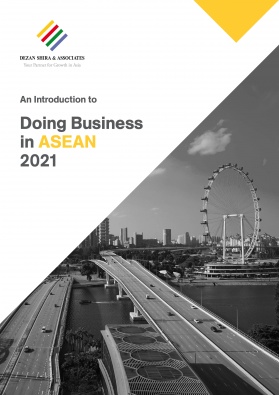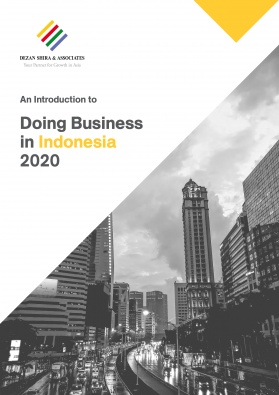How to Prepare a Foreign Worker Utilization Plan: Hiring in Indonesia
On March 31, 2021, Indonesia’s Ministry of Manpower issued Regulation No. 8 of 2021 (MOM Reg 8/2021) on the Employment of Foreign Workers. MOM Reg 8/2021 is an implementing regulation to GR 34/2021 and provides in detail the requirements for businesses to fulfill in order to hire foreign workers. MOM Reg 8/2021 revokes MOM Reg 10/2018 and has been enforced since April 1, 2021.
For a local company to employ a foreign worker, they must prepare a Foreign Worker Utilization Plan (Rencana Penggunaan Tenaga Kerja Asing (RPTKA)) — a document that details the specific work, position, and length of employment the foreign employee will undertake in Indonesia. The RPTKA now also serves as the basis for the MOM to grant visas and stay permits.Although an RPTKA was required under MOM Reg 10/2018, it did not serve as the basis to grant a Limited Stay Visa (VITAS). The VITAS then served as the basis to apply for a Limited Stay Permit (ITAS).
Types of RPTKA
There are four types of RPTKA categorized under MOM 8/2021.
What is the process of hiring foreign workers in Indonesia?
It is the responsibility of the local company to apply for the RPTKA, which can be done through the online portal, under the Ministry of Manpower. The application is addressed to the Director of Foreign Manpower Utilization Management (Direktur Pengendalian Penggunaan Tenaga Kerja Asing). However, if the application is for less than 50 foreign workers – then the application is addressed to the Director-General of Manpower Placement Guidance and Expansion of Work Opportunity (Direktur Jenderal Pembinaan Penempatan Tenaga Kerja dan Perluasan Kesempatan Kerja).
Who can apply?
According to MOM 8/2021, employers that can employ foreign workers include:
- Government institutions, international bodies, and foreign state representatives;
- Foreign trade representatives, foreign news agencies conducting activities in Indonesia, and foreign representative offices;
- Foreign private companies conducting business in Indonesia;
- Legal entities such as private limited companies established in Indonesia;
- Social, religious, or cultural institutions;
- Entertainment management entities; and
- Other business entities are allowed to employ foreign workers.
RPTKA assessment
Once submitted, the MOM will conduct a feasibility study to see if the employer and prospective employee meet all the requirements. Employers are required to submit the following information:
- Identity of the employer;
- Reasons for utilizing a foreign worker;
- The position of the foreign worker within the company’s organization structure;
- Number of foreign workers being employed;
- Contract length of the foreign employee;
- Working location of the foreign employee;
- Proof of mandatory employment reporting by the employer; and
- Statement letter affirming the following:
- The designation of the Indonesian employee(s) assigned as a co-worker to the foreign employee;
- The Indonesian employee(s) will receive training or education from the foreign employee in accordance with the position and qualifications of the foreign employee; and
- Ensure the foreign worker returns to their home country once their work contract expires.
- Future plans to absorb Indonesian workers.
The results of this assessment will be issued in no more than two working days.
Personal information submission
The employer can submit the personal information and documents of the foreign worker after the RPTKA assessment or during the submission of the RPTKA documents. The personal information will be verified by the MOM within two working days.
RPTKA approval and payment
If the documents and information declared to the MOM are correct and complete, the MOM will issue a payment notification letter for the amount of US$100 to the Foreign Workers Compensation Fund (Dana Kompensasi Penggunaan Tenaga Kerja Asing or DKP-TKA). This amount is to be paid to the MOM every month.
Once the employer has made the payment, the MOM will issue the RPTKA approval, and the data will be sent to the Ministry of Law and Human Rights, who will process the visa and stay permits.Payment of the DKP-TKA is waived for foreign state representatives, international bodies, religious institutions, social institutions, and certain positions in the education sector.
Annual reporting obligations
Employers must submit an annual report to the MOM that covers the scope of the foreign worker’s employment, the education or training facilitated to Indonesian co-workers, and the types of technology transfer implemented.
RPTKA exemptions
There are RPTKA exemptions for foreign workers that are the members of the board of directors, members of the board of commissioners, diplomatic or consular staff, or are hired by the local employer in connection to emergency activities, vocational activities, or in connection to production activities of an Indonesian-based tech startup.
Specifically, for tech-based startups and vocational training activities, the RPTKA exemption lasts for no more than three months, after which the company must apply for RPTKA approval. This application must be submitted at least two weeks before the expiration of the period of employment of the foreign worker, as stated in the foreign worker employment statement letter, which is issued in place of an RPTKA approval.
About Us
ASEAN Briefing is produced by Dezan Shira & Associates. The firm assists foreign investors throughout Asia and maintains offices throughout ASEAN, including in Singapore, Hanoi, Ho Chi Minh City, and Da Nang in Vietnam, Munich, and Esen in Germany, Boston, and Salt Lake City in the United States, Milan, Conegliano, and Udine in Italy, in addition to Jakarta, and Batam in Indonesia. We also have partner firms in Malaysia, Bangladesh, the Philippines, and Thailand as well as our practices in China and India. Please contact us at asia@dezshira.com or visit our website at www.dezshira.com.








